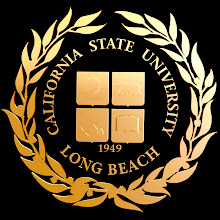California State University, Long Beach (CSULB) will receive a $2.88 million appropriation from a recently approved defense spending bill as the lead institution in the multi-CSU campus Strategic Language Initiative (SLI).
U.S. Sen. Barbara Boxer, D-Calif., along with U.S. Reps. Laura Richardson, Ed Royce and Diane Watson, requested the funds for the initiative. The U.S. Senate passed the spending bill in late December, and it has since been signed by President Barack Obama.
According to a release from Sen. Boxer’s office, “The defense funding will further the development of critical foreign language programs that will help meet America’s national security needs. The initiative will help graduate more professionals with language skills and cultural knowledge in Arabic, Mandarin, Korean, Persian and Russian.”
Housed in the CSULB College of Liberal Arts, SLI was created in 2006-07 through the Southern Consortium of California State Universities. Now called the CSU Consortium on Strategic Language Initiative, the program brings together the infrastructure and language faculty expertise of five different southern California CSU campuses. This year, the program is adding two northern California CSU campuses.
Those campuses (and the foreign language each focuses on) that will receive funding include CSULB (Mandarin Chinese), Cal State Fullerton (Persian), Cal State L.A. (Korean), Cal State Northridge (Russian) and Cal State San Bernardino (Arabic). The appropriation monies will also support expansion of the program to San Francisco State (Mandarin Chinese) and San Jose State (Arabic).
“We’re extremely grateful to Senator Boxer and Representatives Richardson, Royce and Watson for recognizing the value of the Strategic Language Initiative and the role it can play in meeting the country’s national security needs,” said CSULB President F. King Alexander. “But beyond national security, we can see that languages such as these are called for in both the public and private sectors, especially as our universities and our nation think more globally.”
The consortium has created 18-month intensive and highly demanding programs in these five languages and has integrated language learning with academic majors for career opportunities in government and industry professions. Each campus enrolls students who are subdivided into two cohorts of heritage speakers and advanced non-heritage speakers.
“The success of the SLI Language Immersion Program model is evident in the fact that the completion rate of SLI participants is 98 percent. That’s very high,” noted KimOahn Nguyen-Lam, SLI’s executive director at CSULB. “A number of our SLI graduates received offers to work with international companies and others were accepted to advance their language study in countries where they did their study abroad.
“Moreover, the SLI participants’ average gain in language proficiency is significant across all five campuses. The 18-month language immersion program yields an average language gain equivalent to that of students who had taken three plus years of language study in traditional classroom setting. This is quite significant considering that these students are not language majors,” she added. “We are confident that subsequent cohorts will yield even greater results as the program’s curricula being refined and enhanced.
SLI officials have pointed out that CSU campuses are ideally positioned to lead this language initiative as the campuses serve some of the most linguistically diverse populations in the nation, enrolling more than 100,000 students each year with large heritage language communities near each campus.
-- Rick Gloady
Subscribe to:
Post Comments (Atom)




No comments:
Post a Comment